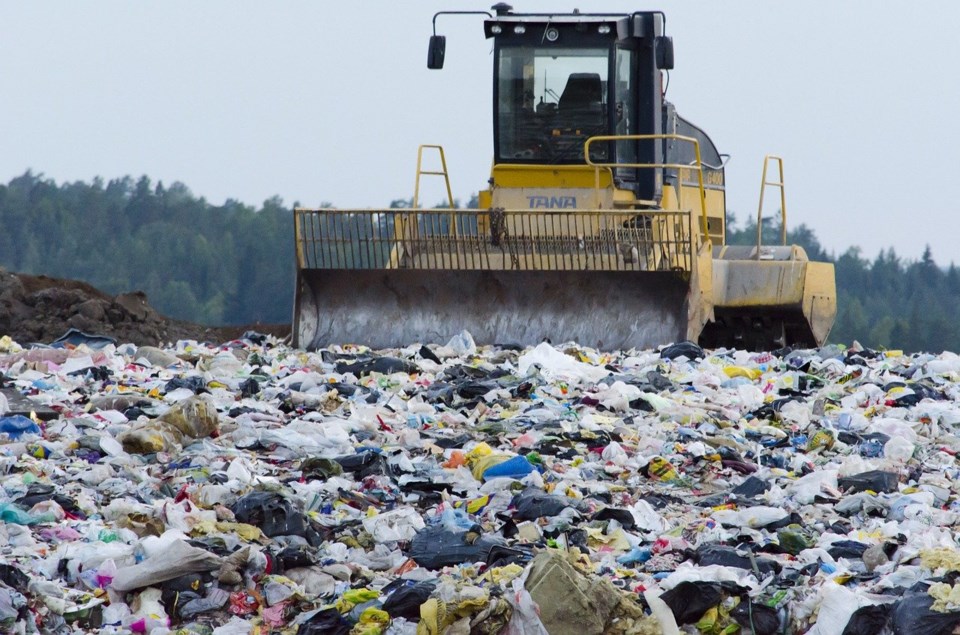Residents will pay an extra $11 per tonne to use the landfill next year as city hall compensates for lost revenue and adjusts for increased operating expenses during the last three years.
Starting July 1, residents will pay $80 per tonne for commercial tipping fees, an increase from $69 per tonne. Furthermore, non-residents will pay $100 per tonne compared to $89 per tonne. The increases are expected to generate an additional $250,000 annually for the solid waste utility.
City council unanimously approved the changes during one of its 2021 budget discussion meetings. It also unanimously approved a motion to amend the waste management bylaw and have the bylaw brought forward for official approval.
Loss of revenue
The City of Moose Jaw lost $250,000 in revenue in 2020 due to changes in operational efficiency at the Buffalo Pound Water Treatment Plant (BPWTP), after the organization “dramatically reduced” the tonnage of sludge it disposed at the landfill, explained Darrin Stephanson, director of public works and utilities. That money accounted for 25 per cent of annual landfill revenues, while it also adversely affected capital reserve funding.
A report that Stephanson submitted showed 14 Saskatchewan municipalities and what each charge for landfill use. Moose Jaw was third from the bottom, just ahead of Melfort and Humboldt.
“Our change puts us in the middle of the pack on landfill commercial rates for the province. It puts us a little lower than Regina, so it discourages some longer-distance hauling we see that is filling up our landfill,” said Stephanson.
The Ministry of Environment has dictated that the landfill height cannot exceed 577 metres above sea level. Surveys during the last three years have shown the remaining airspace is stable and the site will reach capacity in late 2025 if annual tonnage remains consistent, the report said. This has afforded the solid waste utility with an extra two years of life to accumulate additional capital reserves for a new $10-million landfill.
The landfill’s reserve is in good standing and can meet its upcoming needs, Stephanson said.
In 2020 the year-end balance in that reserve was $3.2 million. The balance is expected to be $9.4 million next year, $10 million in 2022, $2.6 million in 2023, $4.2 million in 2024 and $5.8 million in 2025.
Operating fund troubles
Since the solid waste utility reserve has a healthy surplus, city administration recommended that council transfer $500,000 on an ongoing basis to the city’s operating fund to offset shortfalls and lessen the need for tax increases, the report said. This transfer would reduce the amount of restart funding required for the 2021 operating budget.
It was this recommendation that generated the most discussion among council while reviewing the commercial landfill rates.
Council eventually voted 6-1 to refer the motion to a planning session in 2021.
Coun. Crystal Froese was opposed.
Froese attempted to have the $500,000 applied to the tax increases in next year’s water and sewer utilities, but council voted 6-1 against the motion.
Council discussion
The operating budget is facing pressure and city administration has used all of the one-time federal pandemic funding of $2.18 million to fill holes in the 2021 budget, explained finance director Brian Acker.
This funding will not be available beyond next year, which leaves the operating budget with major shortfalls starting in 2022. City administration could use the $500,000 from the solid waste utility reserve in 2021 and draw on a similar contribution in 2022.
“… we can certainly make 2022 easier to deliver services to the community rather than being behind the 8-ball of $1 (million) to $2 million,” Acker added.
The main problem Froese had with the overall budget was there was little intent to alleviate residents’ financial sufferings, especially when the budget was proposing a combined tax increase in the water and sewer utilities of 11 per cent.
(Council voted to reduce the increase for both utilities to two per cent during its final budget meeting).
“Here we have $500,000 we want to put back into the operating fund. I understand the premise behind it, but we’ve got a lot of people in our city living precariously in their own financial lives,” she said. “I’m including a lot of younger people (and families) … just starting out and struggling already with their utilities.”
Froese added that using the $500,000 to reduce the utility increases would provide a cushion for residents facing high utility bills.




